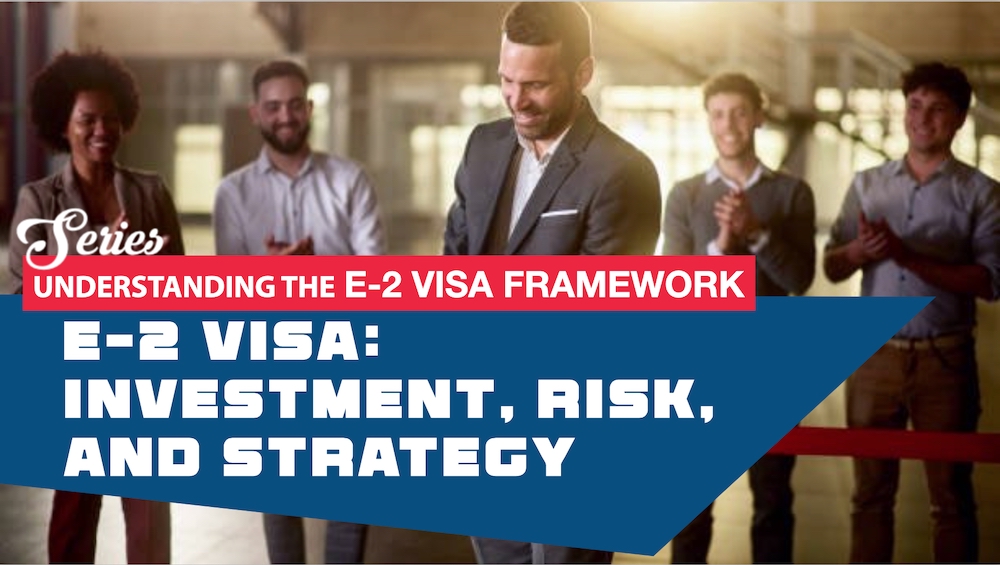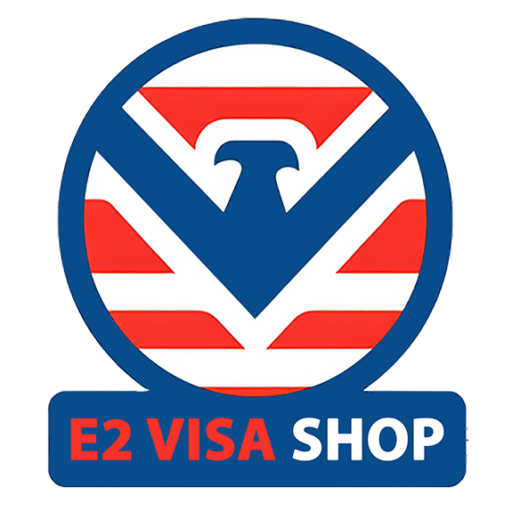
Understanding the E-2 Visa Framework
The E-2 Treaty Investor Visa is a non-immigrant visa that allows nationals of treaty countries to enter and operate a business in the United States based on a substantial investment. Unlike the EB-5 Immigrant Investor Program, which requires a minimum investment of $800,000 to $1,050,000 and a direct path to permanent residency, the E-2 visa has no fixed minimum investment requirement and is specifically designed for active business owners rather than passive investors.
To qualify for an E-2 visa, an applicant must meet several key criteria:
- Nationality: The applicant must be a national of a country that maintains an E-2 treaty with the United States.
- Substantial Investment: The investment must be significant enough to ensure the success of the business. While there is no set minimum, investments under $100,000 are often subject to heightened scrutiny.
- Risk Commitment: The funds must be irrevocably committed to the business and be at risk. Passive investments, such as real estate holdings, do not qualify.
- Active Business Operations: The business must be actively operational and capable of generating revenue beyond merely supporting the investor and their family.
- Intent to Depart: The visa is strictly non-immigrant in nature, meaning that applicants must maintain the intent to depart once their E-2 status ends.
The Investment Standard: Defining “Substantial” in the E-2 Context
The concept of a “substantial” investment remains one of the most debated aspects of E-2 visa adjudications. Since the U.S. government does not impose a minimum dollar amount, consular officers rely on a proportionality test, which assesses whether the investment is substantial relative to the total cost of purchasing or starting the business.
Several factors influence the determination of substantiality:
- Industry Standards: Businesses with low startup costs, such as consulting firms or service-based enterprises, may qualify with lower investments, while capital-intensive industries, such as manufacturing or hospitality, typically require larger commitments.
- Proven Business Models: Franchise businesses often provide structured investment plans, making them more likely to be viewed favorably.
- Operational Readiness: Businesses that are fully operational at the time of the visa interview have a stronger case than those that are still in the early planning stages.
In cases where investment amounts are on the lower end, a well-documented business plan, financial projections, and job creation strategy can strengthen the applicant’s position.
Consular Adjudications: The Importance of Business Viability
Unlike other visa categories adjudicated primarily by USCIS, the E-2 visa process is decided at U.S. consulates and embassies worldwide. Consular officers exercise significant discretion in determining whether an applicant meets the legal and business requirements.
During adjudications, the following factors are given significant weight:
1. Business Model Viability
Applicants must demonstrate that their business is not only legally compliant but also capable of sustaining operations and generating revenue. A poorly articulated business plan or an inability to answer key financial questions can lead to denials.
2. Source of Funds Scrutiny
Investment funds must be clearly sourced and traceable. Common red flags that trigger denials include:
- Large unexplained wire transfers.
- Unsecured personal loans.
- Inconsistent financial records.
Applicants should provide detailed documentation, such as tax returns, bank statements, and legal agreements, to support the legitimacy of their investment capital.
3. Marginality Concerns
The business must not be structured to provide a livelihood solely for the investor. The presence of a clear job creation plan or an already established workforce can significantly strengthen the case. If no employees are currently on payroll, a hiring timeline should be included in the business plan.
Given the consular officer’s broad discretionary authority, the interview process plays a decisive role in determining approval. Applicants who clearly articulate their business plan, financials, and operational strategy have a higher likelihood of success.
Potential Risks and Limitations of the E-2 Visa
Despite its benefits, the E-2 visa carries inherent risks that should be carefully considered before pursuing this route.
1. No Direct Path to Permanent Residency
The E-2 visa does not provide a direct route to a green card. However, there are alternative strategies for transitioning to permanent residency:
- EB-2 or EB-3 Sponsorship: If the investor secures a U.S. employer willing to sponsor them.
- EB-5 Investment Upgrade: If the business grows to meet EB-5 investment and job creation thresholds.
- Marriage-Based Adjustment: If applicable, an investor married to a U.S. citizen may seek an adjustment of status.
2. Treaty Dependency
E-2 visas are only available to nationals of countries with an E-2 treaty agreement. If a treaty is terminated, investors from that country will no longer be eligible for new E-2 visas or renewals. While rare, such changes have occurred in the past.
3. Business Performance Requirements
E-2 status is directly tied to the success of the business. If the enterprise becomes unprofitable or ceases operations, the investor may lose their visa status. This requirement necessitates strong financial planning and contingency strategies to ensure continued compliance.
Alternative U.S. Visa Options for Investors and Entrepreneurs
For investors comparing different visa pathways, the E-2 visa should be considered alongside other options that may better align with long-term residency goals.
| Visa Type | Investment Requirement | Path to Green Card? | Primary Benefit |
|---|---|---|---|
| E-2 Visa | No fixed amount, typically $100K+ | No direct path | Fast processing (2-3 months), renewable indefinitely |
| EB-5 Visa | $800K–$1.05M | Yes | Leads to a green card |
| L-1 Visa | No set amount (requires business transfer) | EB-1C option available | Ideal for multinational companies expanding into the U.S. |
| O-1 Visa | No investment required | Yes, via EB-1A | Suitable for individuals with extraordinary ability |
Entrepreneurs who require long-term residency solutions should evaluate EB-5, L-1, or employment-based green card options as potential alternatives.
Strategic Considerations for a Successful E-2 Application
1. Detailed Business Planning
A comprehensive business plan with financial projections, employment goals, and a clear operational strategy is critical. A strong plan should include:
- Revenue and profit forecasts.
- Marketing and customer acquisition strategies.
- A job creation timeline.
2. Proper Fund Documentation
Investment funds should be clearly documented, with supporting evidence such as:
- Bank statements showing fund transfers.
- Sale agreements or loan documents (if applicable).
- Tax returns verifying the source of income.
3. Interview Preparation
Consular officers assess an applicant’s credibility and preparedness during the visa interview. Common pitfalls include:
- Inability to explain financial figures.
- Vague or unrealistic business projections.
- Failure to demonstrate how the business will contribute to the U.S. economy.
Applicants should anticipate detailed questions about their business and be prepared with concise, well-supported answers.
Conclusion: Evaluating the E-2 Visa for Business Success
The E-2 visa remains a powerful tool for foreign entrepreneurs seeking to establish and operate businesses in the U.S. Its advantages include fast processing times, no set investment minimum, and indefinite renewability. However, its limitations—such as the lack of a direct green card pathway and dependence on business viability—require careful strategic planning.
Prospective applicants should conduct a thorough financial assessment, prepare a solid business plan, and ensure their source of funds is well-documented before initiating the application process. Given the complexities involved, consultation with experienced legal professionals can significantly improve the chances of approval.
For those who meet the requirements and have a well-structured business model, the E-2 visa offers a viable route to entrepreneurship in the United States with substantial economic opportunities.
